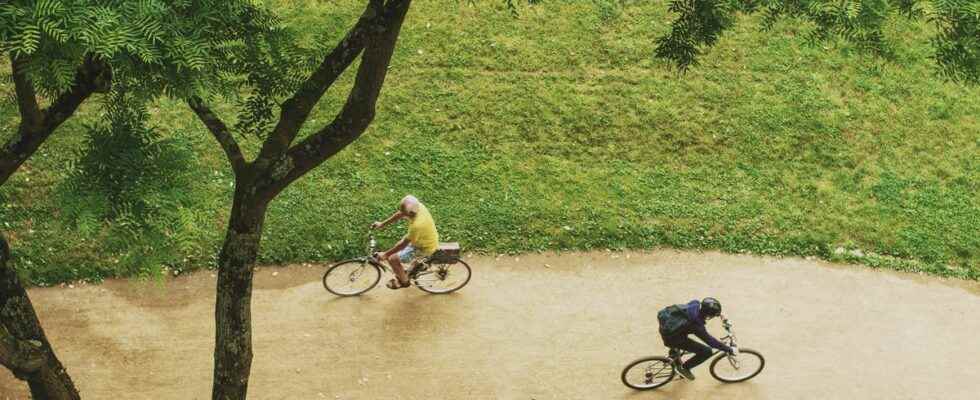Cycling is good for the environment. Cycling is indeed an effective mode of active mobility for decarbonizing our journeys, while 60% of journeys of less than 5 km are still made by car (source: Insee 2020). Nevertheless, the carbon impact of the bike is not zero, estimated at 21 g of CO2 equivalent per kilometer for a muscular model, and 22 g for its electric equivalent (over a standardized cycle of 8 years).
Yes, you have to make this bike, transport it, store it and recharge it when it comes to an electrically assisted model (slightly more polluting due to the presence of a battery and additional components). Moreover, as with the vast majority of product families, the most impactful life phase of a bicycle is its manufacture.
Aluminum or carbon frames less ecological than steel
Tuvalum, specialist in reconditioned bicycles, publishes some striking figures in this regard. According to its data, the manufacture of a city bike with a steel frame weighing between 17 and 20 kg, equipped, generates an average of 96 kg of CO2e. But making a single aluminum bike frame has a carbon footprint of between 200 and 300 kg of CO2 equivalent. Indeed, each kilo of aluminum produced represents some 18 kg of CO2e emitted, ie 10 times more than steel. But aluminum is now — by far — the base material most used by cycle manufacturers. So much so that buying a second-hand bike saves several hundred kilos of CO2e.
If Tuvalum insists on this reality, it is obviously by preaching for its parish. Indeed, the most sustainable bicycle from an ecological point of view is the one that we make last as long as possible, and to which we offer several lives through its maintenance, its repair, even its reconditioning.
Another reality to move in this direction, the democratization of carbon, used to design frames, seatposts or stems of more and more bicycles. However, this carbon is poorly recycled (carbon fiber is expensive and difficult to reuse). Therefore, giving a second or even a third life to a carbon frame seems to be the best way to reduce its environmental cost.
Arguments of choice assailed to buyers of bicycles, the occasion having a double interest combining price and ecology. Customers are sensitive to this, especially in a tight market, affected by parts shortages since the Covid-19 pandemic. A context that has been favorable to the development of Tuvalum, which sold more than 8 million euros of bicycles in 2021 in the 15 countries of the European Union where the company is present.
